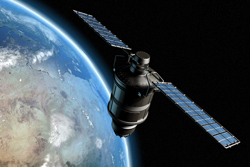Coordinating Earth Observation
European scientists are playing a leading role in the emerging field of EO technologies. Their innovations are relevant to issues of environmental management, energy, disaster management, sustainable development aid and climate change. The main goal of the intergovernmental Group on Earth Observations (GEO) is to build a truly international Global Earth Observation System of Systems (GEOSS) to the benefit of global societies. The EU-funded support action EUGENE brought together European experts working in this area to improve collaboration and maximise their input into the international system. The two-year project strengthened the coordination among national and regional programmes on in situ and space-based earth observation and modelling techniques. Focusing on the specific areas of climate, water and disaster management, the project looked at a number of questions. These included how to improve the systems architecture when pooling research infrastructure; how to promote data sharing to ensure informed decision making in a timely manner; and how to ensure the integration of technological innovations across a network. A comprehensive European GEO strategy was developed to strengthen links between relevant European research and operational programmes, such as weather forecasting and spatial information services. International coordination for EO can benefit all societies by gaining an overview on global issues such as climate change and depleting natural resources. By ensuring Europe's efforts in this field, such as the major earth observation programme "Copernicus", are coordinated with GEO/GEOSS, EUGENE will help build an effective international observation system, which will also benefit Europe itself.



